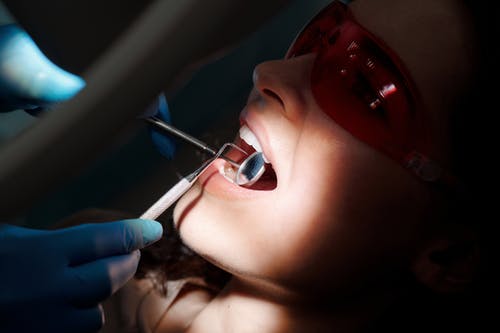Tooth extractions can be a necessary yet daunting dental procedure for many individuals. Whether it’s a wisdom tooth causing problems or an extensively damaged molar, understanding the reasons and processes behind extractions can give you peace of mind during such a procedure. This article also discusses the importance of dental implants, pediatric dentistry, and sedation dentistry to provide a comprehensive outlook on oral health care.
Introduction
Tooth extractions are a standard dental procedure involving removing a tooth from its socket in the jawbone. Knowing the reasons behind extractions and what to expect during the process can help alleviate any anxiety or concerns. Furthermore, advancements in dental implants, pediatric dentistry, and sedation dentistry have made such procedures more manageable for patients of all ages.
Tooth Extractions: When and Why?
There are several reasons why a tooth may need to be extracted, ranging from damage to overcrowding. Understanding these causes will help put your mind at ease if you or a loved one require this procedure.
- Severe tooth decay or infections
- Gum disease
- Impacted teeth or wisdom teeth complications
- Orthodontic treatment and overcrowding
- Fractured or broken teeth beyond repair
The Tooth Extraction Process: Step by Step
Knowing what to expect during a tooth extraction can help you prepare and be less anxious about the procedure. There are two primary types of extractions – simple and surgical – and the process will vary depending on the complexity of your case.
- Consultation and diagnosis
- Numbing of the extraction site
- Simple or surgical extraction procedure
- Proper aftercare and healing
Dental Implants: A Solution for Missing Teeth
Tooth extractions often leave individuals with gaps in their smiles, which can decrease confidence and self-esteem. Fortunately, expert dental implant specialists in PA offer a permanent and natural-looking solution to replace missing teeth.
Benefits of Dental Implants
Dental implants are a popular and effective solution for replacing missing teeth, offering several advantages over other tooth replacement options like dentures and bridges. Here are some of the key benefits of choosing dental implants for restoring your smile:
- Natural appearance and feel: Dental implants closely resemble natural teeth in appearance and function, making it impossible to differentiate them from your existing teeth. They’re also securely anchored to your jawbone, making them feel stable and comfortable, allowing you to speak, eat, and smile confidently.
- Long-lasting solution: With proper care and maintenance, dental implants can last a lifetime, making them a more durable and long-lasting option than dental bridges or removable dentures, which may need repairs or replacements over time.
- Preservation of jawbone and facial structure: When you lose a tooth, the lack of stimulation from the tooth root can cause the jawbone to deteriorate over time. Dental implants replace both the tooth and the root, providing the necessary stimulation to prevent bone loss and preserve your jawbone and facial structure.
- Improved oral health: Dental implants don’t require altering the structure of adjacent healthy teeth, unlike dental bridges that rely on support from neighboring teeth. This means the surrounding teeth remain intact, reducing the risk of damage and decay. Moreover, the gaps left by missing teeth can trap food particles and bacteria, leading to gum disease and bad breath. Filling these gaps with dental implants helps maintain overall oral hygiene.
- 5. Better bite and chewing ability: Dental implants restore your natural chewing ability, allowing you to enjoy a varied and balanced diet without restriction. This, in turn, leads to better digestion and overall health.
- Convenience and low maintenance: Unlike removable dentures, dental implants are a fixed solution that doesn’t require removal for cleaning or adhesives for stability. They can be cleaned and maintained like natural teeth, making daily oral hygiene routines simple and easy.
The Importance of Pediatric Dentistry
Ensuring children receive proper oral health care from a young age is vital for their long-term dental well-being. Experienced pediatric dental specialists provide a peaceful and friendly environment for early dental checkups, routine cleanings, and preventative treatments.
Sedation Dentistry: Alleviating Anxiety for a Positive Dental Experience
Dental anxiety is a common issue that prevents many individuals from seeking proper oral health care. However, sedation dentistry options help ensure a comfortable and stress-free dental experience for those apprehensive about undergoing necessary dental treatments, including tooth extractions.
Conclusion
Tooth extractions, while a daunting prospect for many, are essential to maintaining oral health. Becoming familiar with the reasons behind tooth removal and the steps involved can help assuage any fears or doubts. Additionally, understanding the intricacies of dental implants, pediatric dentistry, and sedation dentistry can help you make informed decisions about your ongoing dental care, ensuring a brighter, healthier smile.




